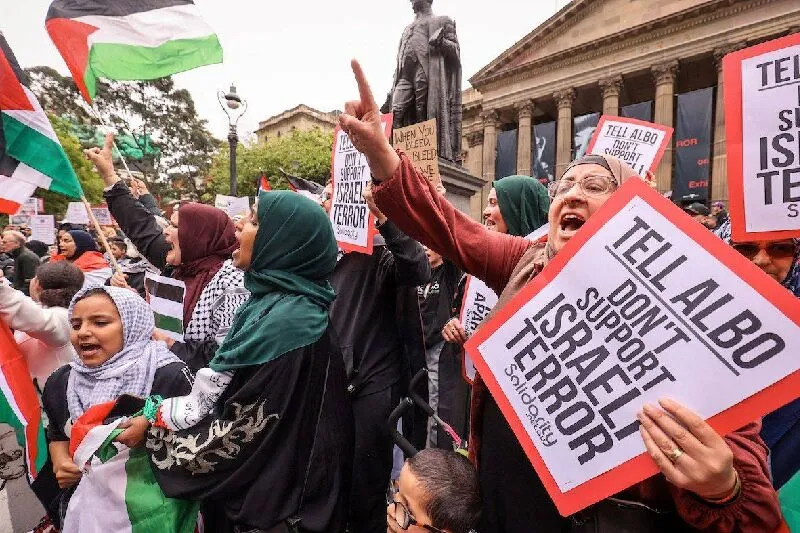Melbourne Protest Challenges Victoria’s Problematic Foreign Military Partnerships
A recent protest outside key Victorian government offices passionately called attention to the state’s defense partnerships with foreign nations accused of enabling human rights abuses and conflicts abroad.
Demonstrators wore mock military uniforms and held up large, graphic signs vividly portraying violence, war crimes, and oppression allegedly committed by security forces in partner countries. Protesters also staged a disturbing enactment of violence on the government building steps, graphically highlighting specific atrocities frequently enabled by allied regimes.
Notably criticized partners included Saudi Arabia for its role in Yemen’s conflict humanitarian crisis; Sri Lanka for documented violations during its civil war and minority oppression; and Israel for its treatment of Palestinians sparking global outrage. However, Victoria maintains cooperative programs training foreign forces from these countries, in addition to joint exercises, high-level visits, and weapons/surveillance deals between backed defense companies.
Demanding an end to such extensive ties where credible rights violations exist under international law, protesters asserted officials have an unwavering moral duty to assess partnerships through a rights lens, saying complicity in foreign oppression for convenience or profits will no longer be accepted. They also urged greater public scrutiny of Victoria’s controversial defense agreements in controversial regions.
The visually disturbing display succeeded in raising awareness and urgency around confronting difficult truths regarding Victoria’s willingness to cooperate militarily with enabling regimes. While state-level defense policies have low public profiles, the dramatic protest appealed for Victorians to recognize nonviolence and rights as essential cooperative considerations rather than dismissing arrangements as politically required. It sought better recognition of these issues in dealings between the state’s substantial defense sector and international partners.



Comments
Post a Comment